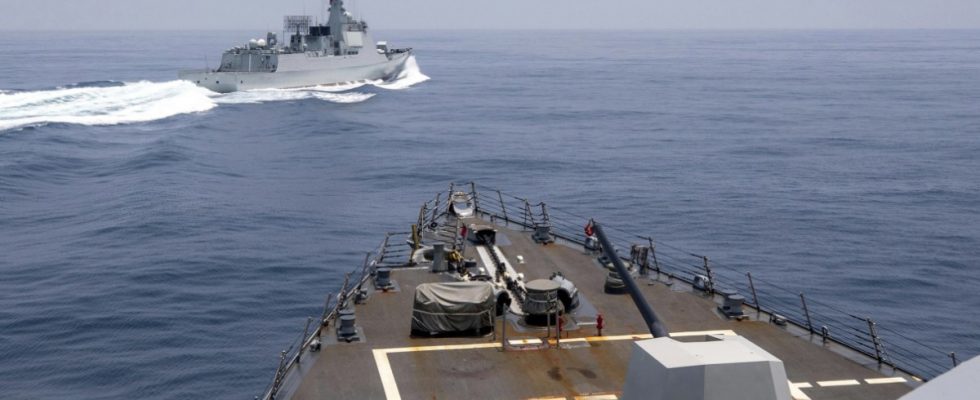The West has reacted to the Russian war of aggression against Ukraine with massive sanctions. And what happens in case of Chinese aggression against Taiwan? For months, politicians around the world have debated the likelihood of a Chinese attack on Taiwan and how to prevent it or how to deal with it if it were to happen. And again there is a lot of talk about possible sanctions.
“Since the sanctions against Russia, a game plan has been on the table,” says Charlie Vest of the US think tank Rhodium Group. At the same time, “many confused ideas” circulated about which of these sanctions could be used, how and with what effect to deter China from attacking Taiwan. Together with the Atlantic Council, Rhodium is now presenting the first major study attempting to calculate various sanctions scenarios.
China is a giant, the upheavals for the global economy could be enormous
One thing is clear: China is a completely different caliber from Russia. The country is the largest trading nation and the second largest economic power in the world. China’s economy is ten times the size of Russia’s and far more important to global supply chains. The upheavals for the global economy in the event of strict sanctions would be enormous. According to the study, if the West were to target China’s four largest banks alone, around $3 trillion in trade and investment flows could be at risk.
Because Taiwan would probably not be able to hold out long in the event of a Chinese attack without direct military intervention by the United States, at least not long enough for sanctions to have any significant effect on China, the study recommends their possible use for deterrence beforehand: namely, when China resorts to coercive measures below the level of an invasion. For example, when China’s army encircles the island, when it impedes shipping or air traffic, or when there are massive cyber attacks on Taiwan.
Similar to the case of Russia, the cutlery box holds three types of sanctions: against the financial sector, against individuals associated with party and army leadership, and against industrial companies that contribute to defense and armaments in the broadest sense. The problem is that the impact of some of these sanctions has been largely symbolic (as in the case of the rich and powerful being blacklisted) – and others, where they hurt China, come at a huge cost to the West and at the same time cause the world economy.
First of all, the West would have to agree
An embargo by the G-7 countries against the Chinese chemical, metal, electronics and logistics industries, for example, would cause China great difficulties and endanger 15 million Chinese jobs – but at the same time there would also be upheavals worldwide. $378 billion in global trade flows could be at stake. “It is unlikely that the G-7 leaders could agree on sanctions of this magnitude,” the study said. Germany’s chemical industry, for example, is deeply intertwined with China.
The most practical would probably be targeted sanctions in areas where China has an asymmetric dependence on the outside world. So the collateral damage isn’t that great. The study uses China’s aviation companies as an example, but Western companies would also be affected.
Deterrence is possible – if everyone sends the same message
The authors now see the ball in the court of the governments of the G-7 countries. First, they would have to define the red lines, which if crossed by China would result in sanctions. Then, coordination with each other and with Taiwan is necessary soon – also with regard to the messages that the countries of the West send to China. Some of these signals of deterrence are already being sent. At the same time, there are still political leaders, such as France’s President Emmanuel Macron, who are again thwarting these messages. Macron said in April that a Taiwan crisis was “not ours.”
“These discussions have started,” says Charlie Vest, who is one of the authors of the study, “but we’re still in the very early stages.” The study also warns against relying on economic sanctions alone: ”Deterrence through economic policy alone does not work,” the authors write. It must be accompanied by diplomatic and military instruments.
Vest warns that politics shouldn’t take too long. He says that the prophecies currently circulating about possible dates for the invasion of Taiwan are dubious and exaggerated, but the next crisis may not be far away. Depending on the outcome, Taiwan’s presidential elections in January 2024 could again become a focal point: “I therefore think that it is urgently necessary to sharpen the deterrent instruments at least once.”

